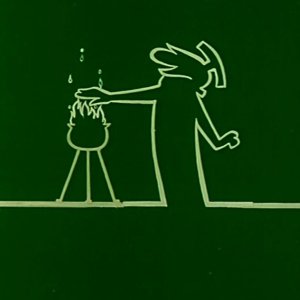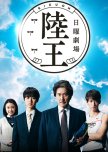Această recenzie poate conține spoilere
The drama's main theme is a small, declining business with a tradition of 100 years that fights against financial pressures, the bank, a behemoth of a business rival etc. etc.
There are some earnest speeches with a lot of pathos and "ganbarimasu" -- I feel as if every main character has a similar story of failure (a patent that has not been picked up, a declining business, failed interviews, sports injuries) and it's a story about being the underdog who takes second chances they don't actually have.
It's very David ("heart and soul", the people are what's important, hard work and tenacity makes you successful) versus Goliath (money won't make you happy and shouldn't be your goal in business life), and the general outcome is quite predictable.
The acting was top-notch, and the overall quality great; even after just a few minutes of the first episode I started to care about the little tabi factory and its people, which made me watch the entire thing. Nevertheless, I found that the episodes were structured too similarly, so they got a bit repetetive, with one or two main obstacles, that are solved during the episode, and at the end there's a joyful "We made it", at times with an added a glimpse of the next problem. There were about three musical pieces that were mostly uplifting in nature, which also got a bit boring.
Something I liked is that there were more people in their fifties than younger characters.
I was annoyed by the implicit misogyny -- none of the female characters had any role but to say supporting things to the men; anything that pushed the plot forward was done by men. And, when the older son doesn't want to inherit the business, nobody even asks if maybe the daughter might want to?
One thing that I found rather unrealistic:
A person, who invents a whole new material and builds the machine to produce it with his own hands, and then holds a patent -- wouldn't he rigorously test his invention early on, to understand which influence all of the variables of production have? It seems that after Iiyama had invented one working verson procedure, he called it a day?
(Also, a mechanical engineering, material engineering and electrical engineering are different fields of expertise! Does Daichi have three degrees?)
I was also some other plot points I found a bit strange. For example: There's a fire, and a machine is destroyed -- and there's no insurance? Not even a small one? Also, why do neither Iiyama nor Miyazawa ever try to negotiate when they get offers they don't want to take -- only in the second to last episode Miyazawa gives a counter offer.
All in all, it was entertaining, and I'm glad to have watched an example of the dramas based on the successful Japanese "business novel" genre. If I do watch another one, then maybe a story by another author though.
There are some earnest speeches with a lot of pathos and "ganbarimasu" -- I feel as if every main character has a similar story of failure (a patent that has not been picked up, a declining business, failed interviews, sports injuries) and it's a story about being the underdog who takes second chances they don't actually have.
It's very David ("heart and soul", the people are what's important, hard work and tenacity makes you successful) versus Goliath (money won't make you happy and shouldn't be your goal in business life), and the general outcome is quite predictable.
The acting was top-notch, and the overall quality great; even after just a few minutes of the first episode I started to care about the little tabi factory and its people, which made me watch the entire thing. Nevertheless, I found that the episodes were structured too similarly, so they got a bit repetetive, with one or two main obstacles, that are solved during the episode, and at the end there's a joyful "We made it", at times with an added a glimpse of the next problem. There were about three musical pieces that were mostly uplifting in nature, which also got a bit boring.
Something I liked is that there were more people in their fifties than younger characters.
I was annoyed by the implicit misogyny -- none of the female characters had any role but to say supporting things to the men; anything that pushed the plot forward was done by men. And, when the older son doesn't want to inherit the business, nobody even asks if maybe the daughter might want to?
One thing that I found rather unrealistic:
A person, who invents a whole new material and builds the machine to produce it with his own hands, and then holds a patent -- wouldn't he rigorously test his invention early on, to understand which influence all of the variables of production have? It seems that after Iiyama had invented one working verson procedure, he called it a day?
(Also, a mechanical engineering, material engineering and electrical engineering are different fields of expertise! Does Daichi have three degrees?)
I was also some other plot points I found a bit strange. For example: There's a fire, and a machine is destroyed -- and there's no insurance? Not even a small one? Also, why do neither Iiyama nor Miyazawa ever try to negotiate when they get offers they don't want to take -- only in the second to last episode Miyazawa gives a counter offer.
All in all, it was entertaining, and I'm glad to have watched an example of the dramas based on the successful Japanese "business novel" genre. If I do watch another one, then maybe a story by another author though.
Considerați utilă această recenzie?


 2
2











